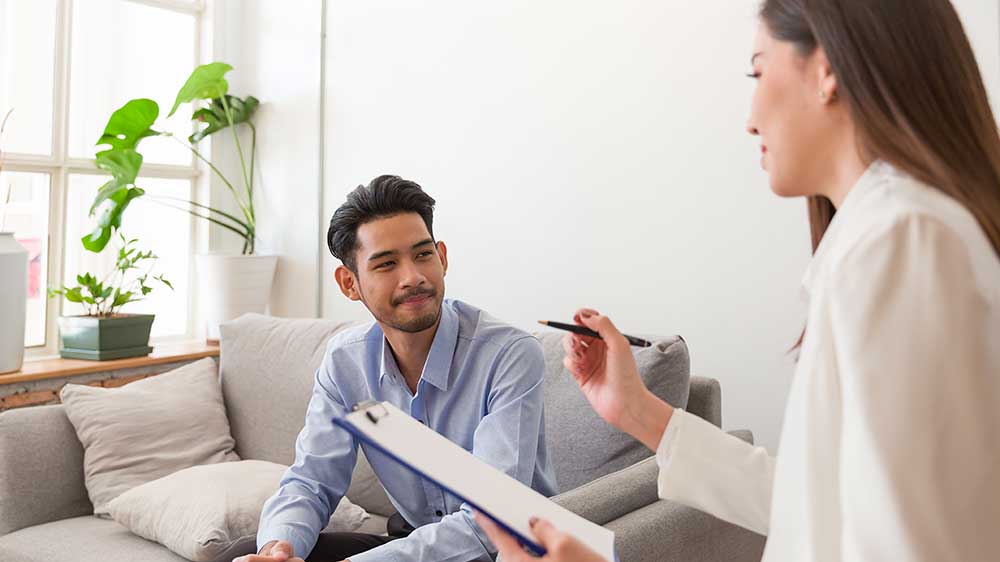
Sometimes mental health problems can make things seem hopeless. Suicide is the 10th leading cause of death in the United States. It can have lasting harmful effects on individuals, families and communities. But suicide is preventable! We reached out to licensed mental health counselor Kimberly Ellingson at MercyOne to discuss how to help individuals who may be in crisis.
If you or someone you know need help, visit the closest emergency room near you or call the Suicide Prevention Hotline at 1-800-273-8255 (TALK) or 988
What are signs that someone is in crisis?
"We're going to see behavioral changes, maybe they're sleeping a lot or insomnia, you see appetite changes. Isolating, a diminished interest in activities or a depressed mood. We are very alarmed when people start getting rid of important possessions.
What resources do people have available to them if they need help?
"It's never been more convenient to access services. Some people feel more comfortable talking to their primary care provider about this, instead of scheduling with a psychiatrist which we greatly recommend. Most companies with more than 50 employees tend to have counseling sessions for you and your family members. There are lots of different health hotlines such as the Suicide Prevention Hotline 988, we have lines for individuals who tend to like more texting rather than calling someone (Text 'Hello' to 741741) and we have hotlines specifically for adolescents. In Iowa we have mobile crisis centers where we can call in counselor can come immediately to your house if you're in a crisis." Call the Your Life Iowa Hotline at 855-581-8111 and let them know you would like to have the mobile crisis team respond in person.
What advice do you have for people who may be hesitant to open up to a behavioral health professional?
"We want to connect with people. If somebody presents in counseling and feels like their counselor doesn't understand you can always go to somebody else. There's always going to be somebody there, and you have the right to find the right provider for you. In the first session it may feel like you don't know what to say - it's the counselors job is to assess and start that dialogue to help you. Any kind of anxiety going in, just know that's their role and that's what they're trying to do."
How do we support people who need a helping hand?
"The number one thing is to listen. Take it seriously and validate that person's feelings even if it's not the reality of the situation. For example, if they're saying 'I feel like nobody cares about me,' we validate what's going on, we take it seriously, we encourage them to get help or ask them what we can do to get them help. Especially if it's a crisis situation, we're not going to leave those people alone. Especially with kids - take things out of the house that might be concerning. While adults may have made a plan, adolescent boys tend to act when they first have the suicidal thoughts. If we can teach people some emotional regulation skills or sit with them until a half hour has passed, sometimes that is really helpful.
If we ask questions it doesn't put this idea in people's heads. Asking 'Are you having suicidal thoughts?' is not going to give them suicidal thoughts. If they're having thoughts, have they thought about a plan? What do they want to do? Do they have access to those means? We're going to try to lock up those things or take safety measures when they're in that place. Also asking about intent, because when people have depression it isn't uncommon to have thoughts of suicide. I think sometimes people are afraid to talk about this - they're afraid they're going to be hospitalized. Especially if they talk to a professional, which is not necessarily the case. If they're just having thoughts, they don't want to act on it, they have good insight that they just need some help, it's absolutely okay to talk about this without fear."
Social media can open people up to more peer pressure and need to be accepted than ever before. Do you see social media impacting young individuals?
"Research indicates a marked increase as soon as teens or preteens get a cell phone and they get on social media - especially girls - rates of depression and suicide immediately go up. But teenagers have their whole lives very structured, very social. During the first year of the pandemic we had to take structure away and we saw depression among teens just skyrocket. So there can be a bright side to social media with teenagers in that it does help to keep them connected.
Bullying is certainly something that that is out there. People have access to each other 24/7 now, whereas when you and I are in school we knew at the end of the day, we're going to get a break until the next morning. For people who are on the quest for 'likes' and 'comments' that validation can really play into our mental health. If I only got 16 likes on this post, 'Do people still like me, am I still a worthwhile valuable person?'
We do want to limit social media so it doesn't feel so overwhelming, especially as we start clicking on the news and the things that are negative. Our phones are going to continue to feed that to us.
